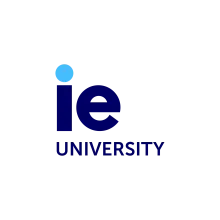The identity of the University is built on five pillars —technological innovation, entrepreneurship, sustainability, diversity and humanities— and five schools:
- Business School
- School of Global and Public Affairs
- School of Science and Technology
- Law School
- School of Architecture and Design
Over its 50 years of history, IE has been recognized as a leading educational institution, with several degrees included in the top 10 in the world according to the Financial Times, The Economist, Forbes, QS, and other rankings.
With 1,700 faculty members, over 9,000 students —75% of them from foreign countries— and an active network of 66,000 alumni distributed among 165 countries, IE is characterized by its diversity and openness to the world. The University is supported by 31 international offices —which organize over 2,000 events every year— and has partnerships with over 200 universities from 52 countries.
IE is also home to over 20 centers, observatories and research chairs, and it has developed a joint venture with the Financial Times for executive education.
Priorities as a partner of the Global Partnership for Sustainable Development Data
IE University’s technical capacities specialized in data and innovation, broad mandate to foster social impact through capacity building and knowledge generation, high quality recognition, wide international footprint, and experience creating genuine partnerships, position it in a privileged position to bring Academia to the forefront in using data for the SDGs.
Data Science and Digital Transformation constitute one of its areas of specialization, whose portfolio includes 16 academic degrees and over 20 executive programs. Faculty is specialized in a broad range of topics, including big data, data analytics, data management, data engineering and architecture, data visualization, machine and deep learning, natural language processing, digital transformation, social network analysis, etc. They also participate in a community of knowledge on big data with over 3,000 students and contribute to an extensive research portfolio.
The University has built partnerships with many companies, governments, and international organizations. In 2021, the Deputy Secretary-General of the United Nations signed an agreement with IE University to collaborate in several areas, including (1) co-development of new technological applications and services, (2) creation of learning platforms and knowledge products, (3) provision of executive training and advisory services, (4) promotion of entrepreneurship, and (5) creation of multi-stakeholder partnerships for sustainable development.
